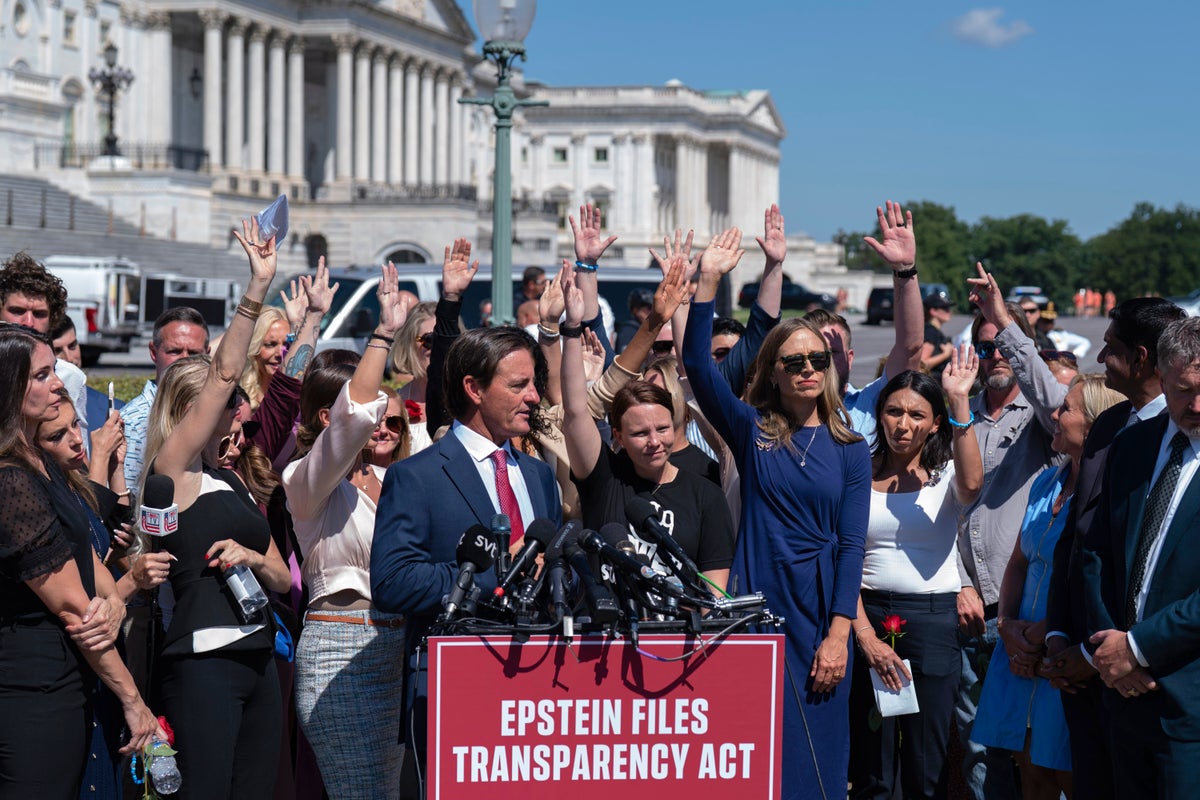The Push for Justice: Survivors of Jeffrey Epstein Demand File Releases
In the wake of Jeffrey Epstein’s infamous legacy, a coalition of survivors is rallying for the release of files tied to the late convicted sex offender and trafficker. This urgent demand is buttressed by a marked increase in public attention, propelled by political winds that have swept representatives from both sides of the aisle. Notably, this movement unfolds as President Trump openly critiques the effort, labeling it a “Democrat hoax” from the Oval Office.
Survivor Advocacy Takes Center Stage
On Wednesday, survivors of Epstein’s abuse appeared at a press conference on Capitol Hill, attracting bipartisan attention. Representatives Thomas Massie (R-Ky.) and Ro Khanna (D-Calif.), alongside controversial figure Marjorie Taylor Greene (R-Ga.), joined forces to advocate for transparency regarding the Epstein files. The urgency of their plea was underscored by Massie’s recent filing of a discharge petition aimed at compelling Congress to vote on the release of these documents.
During the press conference, Massie expressed profound disappointment in Trump’s characterization of the investigation. “I think it’s shameful that this has been called a hoax,” he asserted, flanked by survivors, many of whom were minors during the abuse. “This is real. There are real victims.”
The Role of Bipartisanship
The unexpected collaboration of political adversaries highlights the gravity of this issue, transcending typical party lines. Greene emphasized that this demand is not merely for the survivors but serves as a clarion call for all victims of abuse. “The truth we are demanding come out… is a strong message to every innocent child, teenager, woman, and man that has been held captive in abuse,” Greene stated, making clear the implications of their advocacy.
Yet, securing support within Congress remains a challenge. While Greene, along with fellow Republicans Lauren Boebert and Nancy Mace, backs the petition, a broader consensus among Republicans appears fragile. Some GOP members have expressed skepticism, citing a recent release of 30,000 pages of documents, asserting the information is largely known.
A Complex and Emotional Battlefield
As the legislative machinery grinds slowly, the emotional toll on survivors is tangible. Rep. Nancy Mace, who herself is a rape survivor, articulated the trauma experienced firsthand during her meeting with survivor advocates. “I didn’t last the entire session,” Mace admitted. The sadness and frustration were palpable, symbolizing the broader struggle for justice within a “broken system.”
In contrast, Trump’s vocal dismissal of the investigations continues to reverberate among advocates. His assertions have distanced some potential allies, urging them to reconsider their positions regarding the release of Epstein-related files. “If my legislation were redundant, why would the White House be trying to stop it?” Massie countered, emphasizing the potential importance of the documents at hand.
Legal and Social Implications
Sigrid McCawley, an attorney representing Epstein’s survivors, highlighted that raising awareness about the files is just the beginning of a longer journey. “It was a step in the right direction,” she remarked, expressing hope for further releases. Yet, the complexities involved in accessing justice remain daunting, often leaving survivors grappling with both legal and emotional challenges.
Teresa J Helm, one of the survivors, countered Trump’s narrative, asserting, “The hostility is in the crimes that have been committed against all of us.” Helm’s words serve to remind observers that the real conflict lies not within political rhetoric but within the very real struggles faced by abuse survivors.
Political Fallout and Public Sentiment
The political ramifications of this issue are far-reaching. Many are questioning whether political affiliations should hold sway over the release of potentially explosive evidence. Sky Roberts, brother to Epstein survivor Virginia Giuffre, voiced strident criticism of the current administration’s approach. “It is the biggest cover-up in the history of the United States,” he argued, emphasizing the need for transparency and accountability.
Public sentiment is shifting as more survivors share their stories, pushing the issue into the national consciousness. The coalition of survivors, advocates, and even unlikely political allies underscores a growing acknowledgment that the fight for accountability and justice cannot be sidelined by partisan ideologies.
As the legal and political battles unfold, the voices of survivors ring loud, pushing not only for the release of documents but also for a reckoning that holds powerful individuals accountable for their actions.



